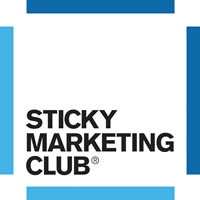Much of the marketing and communications of yesteryear focused on the benefits of using a company’s particular products or services. In fact, the idea of the unique selling proposition (USP), first codified by Rosser Reeves in his book ‘Reality In Advertising’ highlights this approach. The USP was supposed to be a unique benefit that would attract customers to you and, in this sense, was all about the offering a company provided.
Today, we live in a world where products are ubiquitous. With the speed of communication, and transparency of the web, even the most innovative businesses have a very small window of opportunity to have a true USP. For example, Samsung introduced the world to its Galaxy Tab tablet device a mere five months after the iPad was first released.
The situation is worse for service providers. There is simply nothing that an organisation can claim to offer that a competitor cannot also undertake to deliver. Whether it supplies the service as well, is another story. However, from a communications standpoint, both companies will look the same to prospective buyers.
This does not mean businesses cannot differentiate themselves. The big revolution of the web, together with digital technology, is that today, everyone has a channel. People no longer want to passively stand by while things are done to them. Today, they want to be involved. This is why, for example, television is becoming a two screen experience.
The upshot of all this is that we have entered the ‘experience economy’. People no longer buy products or services, but they increasingly buy experiences. These ‘experiences’ are more three dimensional than a product or service. They are more emotional. How does the product or service affect you? How can you interact and become involved? Differentiation, therefore, comes not necessarily from ‘what’ you do, but ‘how’ you do it.
We are living in a world where increasingly everyone owns a channel, word of mouth is going online and search is becoming ever more social. The result is that a company’s best marketers are now its engaged community of prospects, customers, suppliers and partners.
If a business wants to be talked about, and have its content shared, the communications need to focus on people and emotions. It has to reflect how products and services affect the human experience rather than be about the product or service itself.
The best companies today understand this shift. They are making their communications about people, not products. Coca Cola’s ‘share a coke’ concept, launched in 2013, personified this idea and was hugely successful. Putting people’s names on the bottle made the communications all about people, not the product.
Consumers posted pictures of their family online, replacing images of people with Coca Cola bottles. They went into shops looking for their own name, or names of friends in order to give them a Coke. It almost didn’t matter what was contained in the bottle. It could have been fruit juice or lemonade. It was about ‘us’ – not the product. Moreover, as people posted pictures online, and gave bottles to one another, Coca Cola’s consumers became its best marketers.
Procter and Gamble are re-running their ‘thank you Mum’ campaign for the Sochi 2014 Winter Olympics after its success at the London Olympics in 2012. While many of P&G’s products assist mums, the communications themselves are entirely about the shared human experience of motherhood and nothing to do with the products at all. Having been watched millions of times, this is a message that obviously resonates.
Another great example became one of the most watched YouTube videos of 2013. That was Dove’s ‘Real Beauty Sketches’ As a personal care brand, the video does not focus on any of Dove’s products but rather the gap between how women perceive themselves and others see them. The video absolutely resonates in how so many people undervalue themselves. This common human experience is what makes the video so talked about and shared.
It doesn’t matter whether your company is a business to business supplier or a business to consumer organisation, the commonality between the two is that your customers care. The products and services you supply affect their lives. The more your communications can be about the people with whom you wish to engage, rather than the products or services you wish to sell, the more successful your marketing will become.


